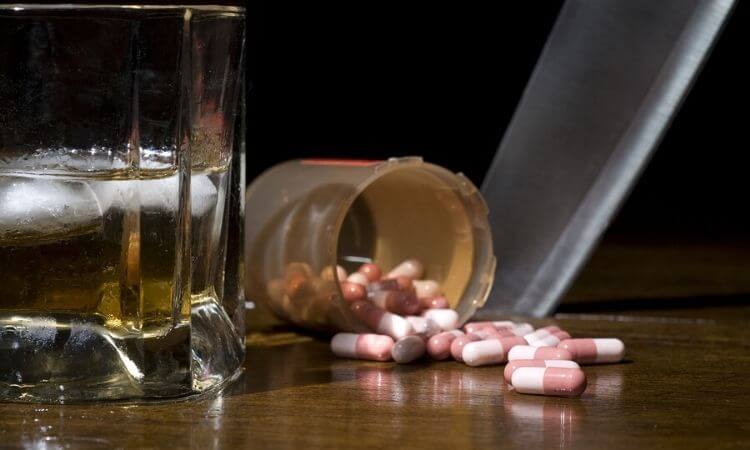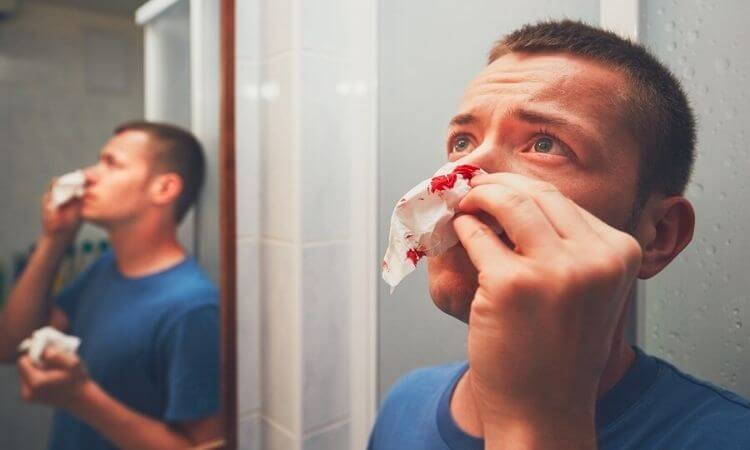
Are Effexor and Alcohol Safe to Combine? – Effexor (venlafaxine) is a prescription drug commonly used to treat depression, anxiety, and panic disorder. It works by increasing chemicals in the brain responsible for feelings of well-being.
By boosting neurotransmitters such as serotonin, the medication can help reduce feelings of depression and anxiety. The exact mechanism that causes this to occur, however, is not entirely clear.
Many people with anxiety and depression consume alcohol in combination with antidepressant drugs. Alcohol is known to interact with a number of drugs, and, sometimes, this pairing can be dangerous.
Effexor and Alcohol Side Effects
Sometimes people drink alcohol in an attempt to relieve symptoms of depression and other mental health problems. But alcohol can ease these symptoms only temporarily, and it may actually worsen chronic mood problems. It is never easy to determine if mental illness has led to alcohol use or the other way around.
Regardless, it is essential to know that using alcohol often exacerbates such problems in the long run. It is also linked to many other health risks, including liver disease, pancreatitis, and several types of cancer.
Using alcohol with Effexor can result in the adverse effects of either substance of being amplified. Although occasional alcohol use may not be hazardous, it is never advised to drink alcohol while using an antidepressant. Since many antidepressants are associated with side effects comparable to those of alcohol, these effects can be compounded while using both substances together.
Side effects of mixing Effexor and alcohol may include:
- Dizziness
- Nervousness
- Reduced inhibition
- Impaired coordination
- Confusion
- Blackouts
- Slowed reaction times
- Decreased attention span
- Cognitive impairment
Effexor and Alcohol and Bleeding
Effexor, like other antidepressants, can contribute to bleeding problems by increasing the time it takes platelets to form normal clots. Alcohol also acts as a blood thinner, so using the two in conjunction can lead to an increased risk of the following bleeding conditions:
- Stomach bleeding
- Bleeding in the brain
- Easy bruising
- Nosebleeds

Effects on Mental Health Conditions
Along with the detrimental effects of combining Effexor and alcohol, it is important to understand that alcohol use by itself has been known to worsen the symptoms of mental health problems. Likewise, a person who uses both of these substances may encounter even worse symptoms of mental illness, including the following:
- Feelings of sadness
- Hopelessness
- Anxiety and paranoia
Alcohol is a central nervous system depressant that can hinder the effectiveness of Effexor. It’s not known precisely how much alcohol any given person would need to drink to neutralize the Effexor in their body because many factors are involved. For some, even one or two drinks could be a problem.
Alcohol essentially counteracts Effexor, meaning that it will exacerbate the symptoms of a mental health disorder. For this reason, using alcohol with Effexor is ultimately counterproductive. In other words, drinking alcohol while using this medication defeats the whole purpose of using it.
The best way to avoid worsening psychological problems and side effects is to avoid drinking alcohol while taking Effexor.
| Takeaways |
| The critical takeaways about combining Effexor and alcohol include the following: 1. It is unknown whether it is safe to drink any amount of alcohol while using Effexor. 2. Mild effects of using Effexor with alcohol may include increased side effects of either substance, such as signs of intoxication. 3. This combination increases the likelihood of very severe side effects, such as bleeding problems or blacking out. 4. Combining alcohol with Effexor can make the symptoms of depression worse, and it can also prevent the medication from functioning correctly. |
Treatment for Alcoholism
If you are using Effexor and have found yourself unable to quit drinking on your own, we urge you to seek professional help. Alcohol is ultimately not going to improve your mood—it will just make it worse. What’s more, it will probably decrease the effectiveness of any medications that actually help control mood disorders.
Midwood Addiction Treatment is an accredited treatment facility that specializes in substance use disorders. We offer comprehensive programs in both partial-hospitalization and outpatient formats. Our center employs evidence-based services proven to be highly beneficial for the recovery process.
These services include, but are not limited to, the following:
- Psychotherapy
- Psychoeducation
- Health and wellness
- Individual and family counseling
- Medication-assisted therapy
- Aftercare planning
Our team of addiction specialists is dedicated to ensuring that each client receives the tools and resources they need to foster a full recovery! Contact us today and find out how we help those who need it most liberate themselves from the chains of addiction for life!